The classification of wood processing and exporting enterprises aims to facilitate production and business activities, however, enterprises are confused in implementation.
There are no 'bad' products, only 'bad' businesses
Countries importing wood and wood products from Vietnam have issued increasingly strict legal regulations on legal wood. Accordingly, the United States has the Lacey Act; the EU has the EU Timber Regulation (EUTR) and the EU Deforestation Reduction Regulation (EUDR); Australia has the Law against illegal logging; Japan has the Clean Wood Law; Korea has the Law on Sustainable Use of Wood; the UK has the Regulation on the Use of Wood and Wood Products.
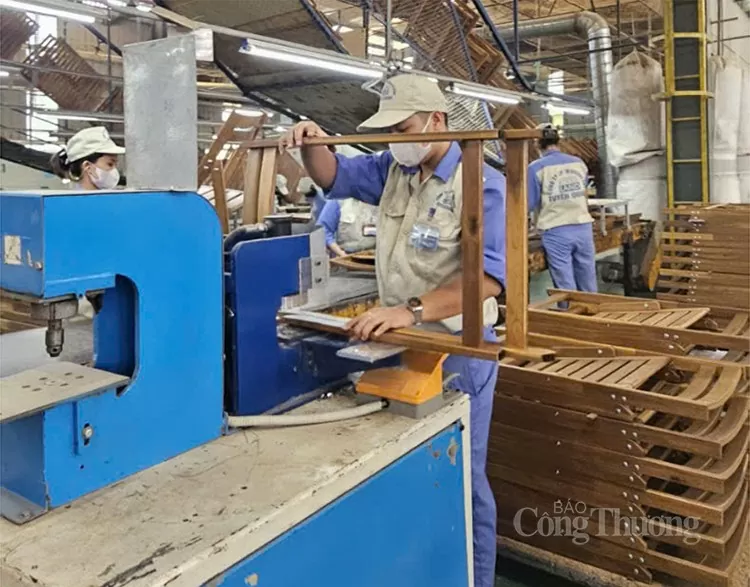 |
| Production line at Woodsland Tuyen Quang Joint Stock Company. Photo. NH |
Along with that, Vietnam has signed the Voluntary Partnership Agreement on Forest Law Enforcement, Governance and Trade (VPA/FLEGT) with the EU; the Agreement on Combating Illegal Logging and Trade with the United States to commit to eliminating illegal timber from the supply chain. The EU and the United States require Vietnamese authorities to verify each shipment before exporting to these markets to ensure that the wood is legal.
It is estimated that Vietnam exports millions of shipments of wood and wood products every year. Vietnamese authorities are unable to verify each shipment of wood and wood products before exporting them. This will affect the business of wood processing and exporting enterprises.
The VPA/FLEGT Agreement between Vietnam and the EU agreed that, instead of verifying each 'batch of timber and timber products exported' to the EU, Vietnam would switch to verifying compliance of 'enterprises in the supply chain' to ensure the feasibility and effectiveness of the Vietnam Timber Legality Assurance System (VNTLAS) and not affecting the business operations of enterprises.
Ms. Nguyen Tuong Van - VPA/FLEGT Expert (Forest Law Enforcement, Governance and Trade) - informed that the classification of enterprises aims to assess the risk level of enterprises in Vietnam's timber supply chain regarding compliance with the law according to the requirements of the VNTLAS System. This is also the basis for competent authorities to implement measures to verify the export of timber and timber products, and grant FLEGT licenses for timber and timber product shipments exported to the EU in an appropriate, effective and timely manner. The classification helps reduce administrative procedures, facilitate production and business activities and encourage enterprises to comply with the law.
According to Decree 102/2020/ND-CP on the Vietnam Timber Legality Assurance System and Circular 21/2021/TT-BNNPTNT regulating the classification of wood processing and exporting enterprises, the subject of enterprise classification is an enterprise that has processing activities at the same time as wood exporting activities. This regulation will be effective from May 1, 2022.
However, according to Decree 120/2024/ND-CP of the Government amending and supplementing a number of articles of Decree 102/2020/ND-CP regulating the Vietnam Timber Legality Assurance System, the subjects of enterprise classification have been expanded to include: Enterprises planting, exploiting and supplying planted forest timber, processing, importing and exporting timber. It is estimated (according to 2022 data) that the subjects of enterprise classification under Decree 120/2020/ND-CP (effective from November 15, 2024) are 3,921 enterprises (of which 1,663 enterprises are subjects of classification under Decree 102/ND-CP).
In the classification, enterprises meeting Group I criteria are enterprises that comply with the law in establishing and operating enterprises; comply with the law on legal wood origin... Finished wood products or forest products of Group I enterprises when buying, selling, transferring ownership, and transporting do not have to confirm the Forest Product List.
Mr. Trinh Xuan Duong - Chairman of the Vietnam Plywood Association (Vietnam Timber and Forest Products Association) - informed that every year, there are millions of containers of wood and wood products that need to be inspected before customs clearance, requiring a lot of human resources and resources to inspect... The wood industry currently has more than 1,600 wood processing and exporting enterprises, when evaluating the number of these enterprises will be faster than evaluating each container of goods.
"Thus, classifying enterprises has the effect of evaluating the reputation of enterprises, because the principle when participating in integration is to evaluate products, but whether the product is good or bad depends on the enterprise, not the product; at the same time, it saves human resources and resources in the inspection process, creating conditions for enterprises to export goods faster" - Mr. Duong said.
Difficult to get started
Decree 120/2024/ND-CP dated September 30, 2024 on amending and supplementing a number of articles of Decree 102 when carrying out customs procedures for exporting shipments; Decree 102/2020/ND-CP on the Vietnam Timber Legality Assurance System; Circular 21/2021/TT-BNNPTNT dated December 29, 2021 regulating the classification of wood processing and exporting enterprises; Decision No. 1303/QD-BNN-TCLN dated April 13, 2022 of the Ministry of Agriculture and Rural Development on promulgating administrative procedures, amending and supplementing the Regulation on classification of wood processing and exporting enterprises all aim to anticipate market requirements as well as create favorable conditions for wood processing and exporting enterprises.
However, when starting to implement, the enterprise encountered many difficulties. Sharing the reality from the story of her enterprise, Ms. Dang Thi Thai - Deputy Director of Thanh Hung Import Export Company Limited (Hanoi) - said that, realizing the benefits of classifying enterprises when doing customs procedures if the enterprise is assessed as belonging to Group I, the company submitted the application and was very confident because not only did it meet the conditions for fire prevention and fighting, environmental impact assessment, environmental license... but the company was one of the units that participated in the trial assessment before Circular 21 was issued.
“We have fire insurance; established a fire prevention and fighting team; have an environmental impact assessment report; the environmental license has been completed; and taxes have been paid in full in Hanoi and the two branches,” Ms. Dang Thi Thai shared.
However, despite careful preparation, this enterprise was rejected after 20 days of submitting its application because the enterprise had only submitted quarterly reports to Dong Anh Forest Protection Department (Hanoi Forest Protection Department) and had not yet submitted quarterly reports to Bac Ninh and Hung Yen Forest Protection Departments as required.
“The Dong Anh Forest Protection Department also suggested that the enterprise should do this classification in Hung Yen or Bac Ninh,” Ms. Dang Thi Thai shared, adding that in fact, before classifying the enterprise in Hanoi, the enterprise had tried to do it in Bac Ninh and Hung Yen and was rejected, because the enterprise had its headquarters in Hanoi, all social insurance, union activities, and union fee payments also took place in Hanoi.
Although the results were not as expected, the company did not give up. "We will submit quarterly reports to the Bac Giang and Hung Yen Forest Protection Departments, and next year we will resubmit the application in Hanoi to see if it will be rejected again," said Ms. Dang Thi Thai.
According to Mr. Pham Van Thanh - Chairman of Thanh Hoa Wood and Forest Products Association, for wood chip enterprises, there is currently no requirement to classify enterprises, however, the trend is that enterprises must also take into account when Decree 120/2024/ND-CP comes into effect.
Basically, businesses have grasped the procedures for classifying businesses. The information is relatively clear, however, according to Mr. Thanh, businesses are wondering about the criterion of "no violation to the extent of being handled over 25 million VND", because currently the tax authority only publicly lists businesses with major tax violations, but when inspections and checks detect violations, businesses can be fined over 25 million VND, so will the business be downgraded?
Meanwhile, some businesses said that the forestry records, business classification, and businesses are also very 'blind', following what they understand and what consulting units share. Some businesses said that they do not intend to classify businesses because exports are still good, partners do not require it, while the requirements for classification procedures are creating time and costs for businesses... Meanwhile, many businesses are also wondering if businesses classified in Group I need to verify when making a certificate of origin (C/O)? Can tax authorities trace back to F0, F1, F2...?
Explaining more clearly about business rights, Mr. Pham Van Thai - Violation Handling Inspection Department - Forestry Department (Ministry of Agriculture and Rural Development) - said that whether the business is classified or not, the export documents are the same (Article 19, Circular 26/2022/TT-BNNPTNT), the only difference is that businesses classified in group I can self-confirm the list; businesses in group II are confirmed by the customs authority.
| In the classification, enterprises meeting Group I criteria must meet all 4 criteria: Comply with the law in establishing and operating for at least 1 year from the date of business registration; Comply with legal regulations on legal wood origin according to Decree 102/2020/ND-CP and regulations of the Minister of Agriculture and Rural Development on management of traceability of forest products (now Circular 26/2022/TT-BNNPTNT); Comply with the reporting regime according to Decree 102/2020/ND-CP and keep original records according to the provisions of law; Do not violate to the extent of being handled according to Decree 102/2020/ND-CP (over 25 million VND). Enterprises that do not meet 1 of these 4 criteria are Group II enterprises. |
Lesson 2: Classification of wood processing and exporting enterprises - Need a suitable roadmap
Source: https://congthuong.vn/phan-loai-doanh-nghiep-che-bien-va-xuat-khau-go-bai-1-lung-tung-trong-trien-khai-356542.html



![[Photo] Vietnam and Sri Lanka sign cooperation agreements in many important fields](https://vphoto.vietnam.vn/thumb/1200x675/vietnam/resource/IMAGE/2025/5/5/9d5c9d2cb45e413c91a4b4067947b8c8)






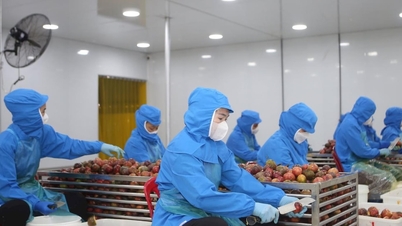








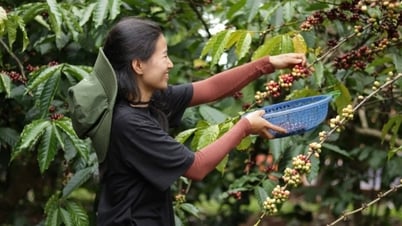










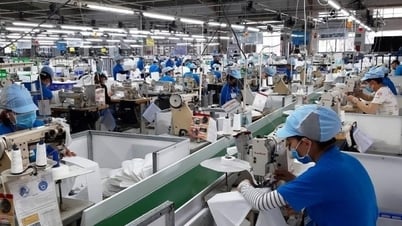



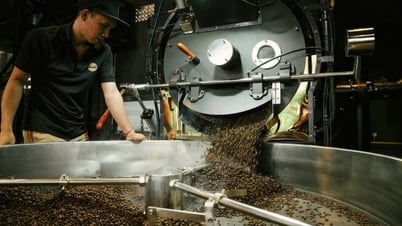
![[Photo] President Luong Cuong and Sri Lankan President Anura Kumara Dissanayaka visit President Ho Chi Minh relic site](https://vphoto.vietnam.vn/thumb/1200x675/vietnam/resource/IMAGE/2025/5/5/0ff75a6ffec545cf8f9538e2c1f7f87a)




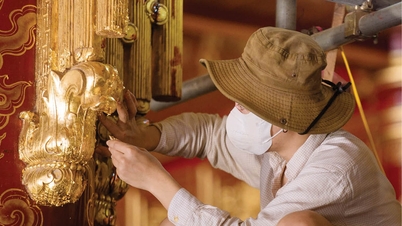





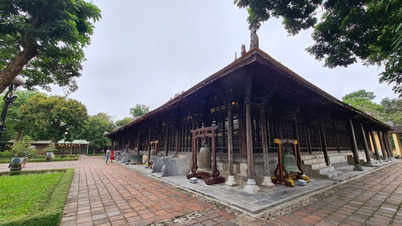




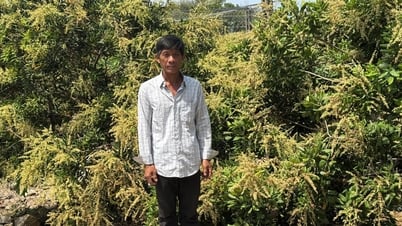













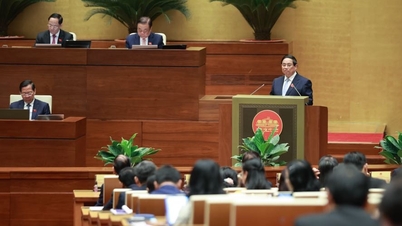


![[Photo] President Luong Cuong presided over the welcoming ceremony and held talks with Sri Lankan President Anura Kumara Dissanayaka](https://vphoto.vietnam.vn/thumb/402x226/vietnam/resource/IMAGE/2025/5/5/351b51d72a67458dbd73485caefb7dfb)






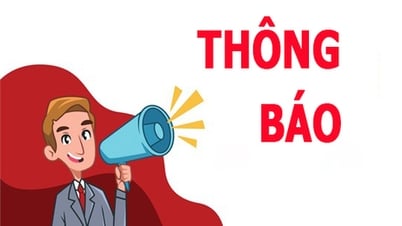
















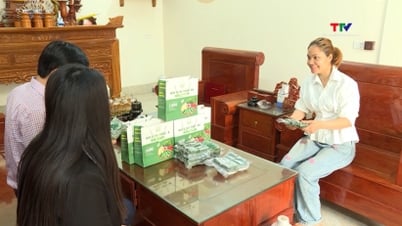

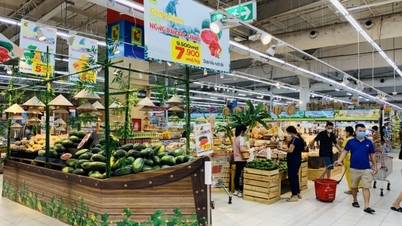







Comment (0)